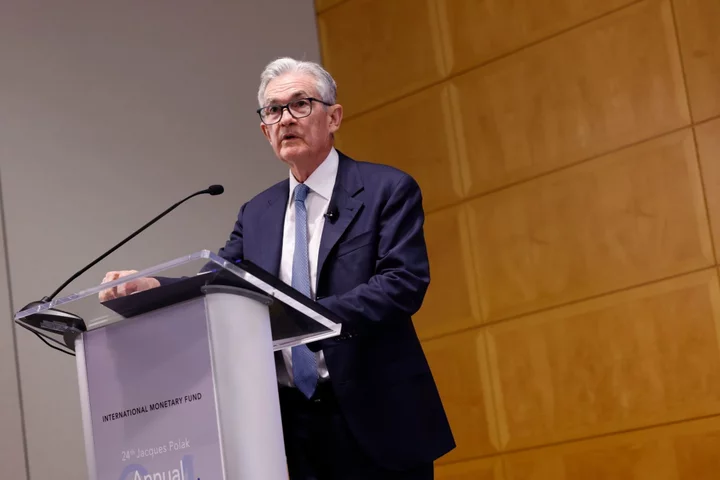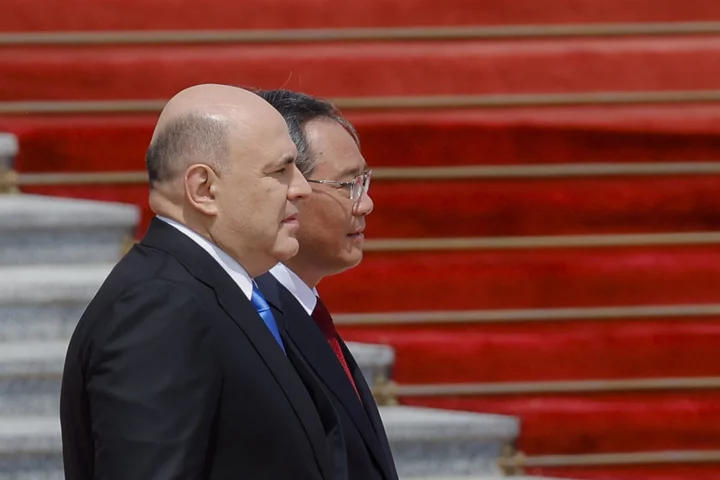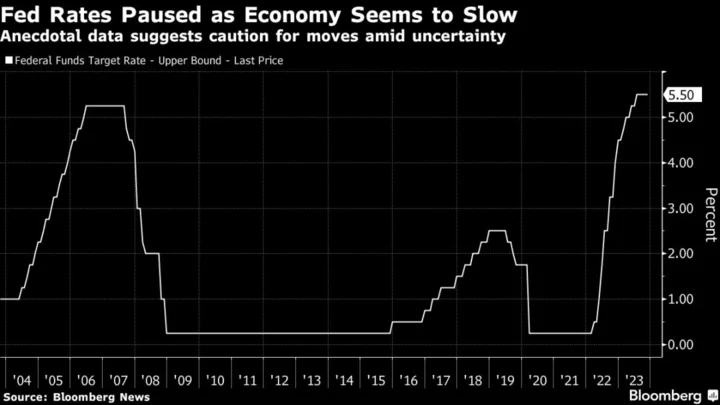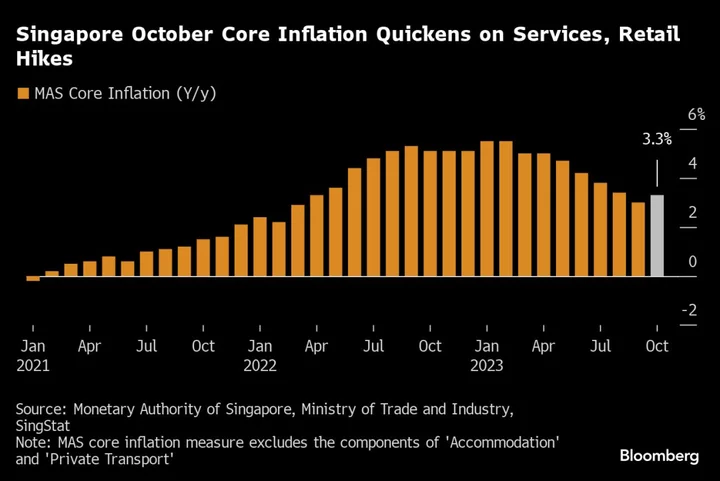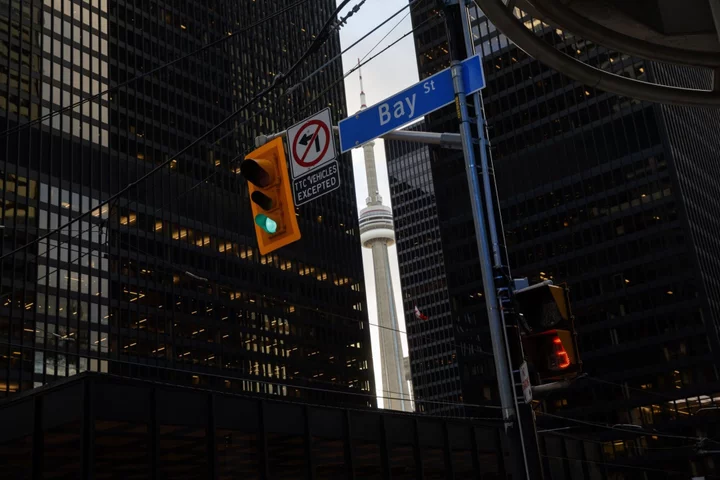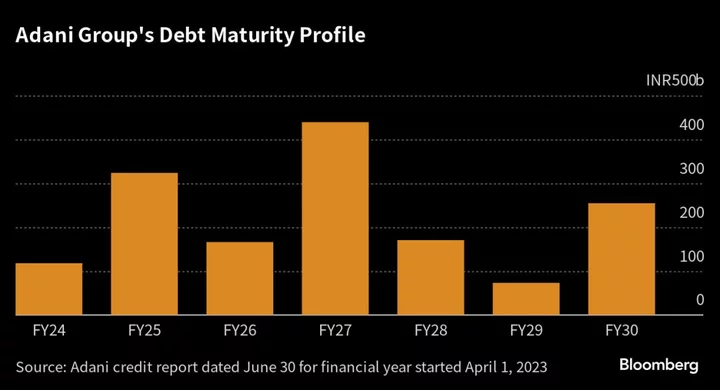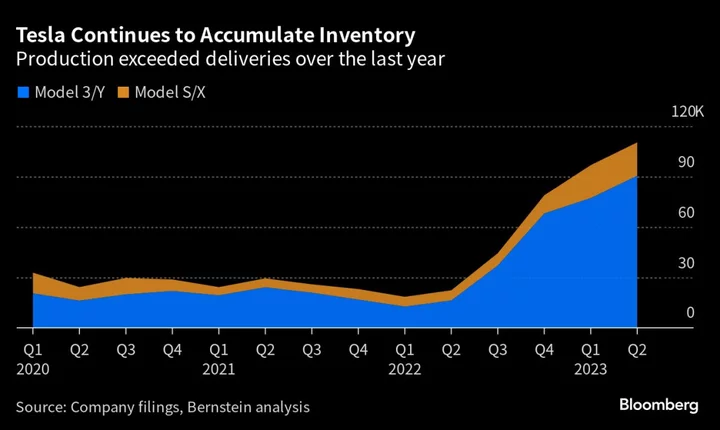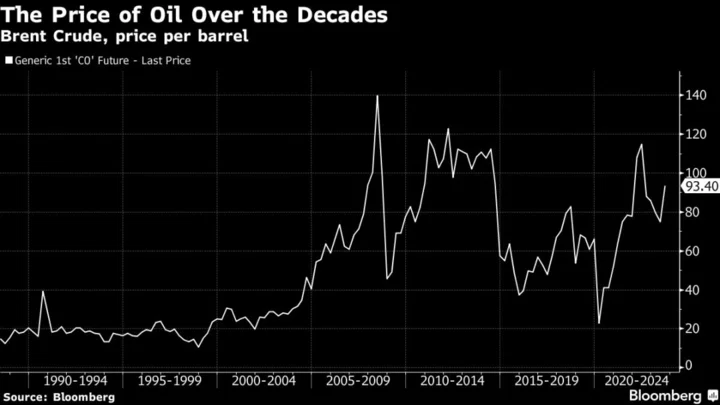Federal Reserve Chair Jerome Powell attempted to push back against investors’ growing expectations of interest-rate cuts in the first half of 2024.
Wall Street responded by doubling down on Friday, despite Powell’s warning that “it would be premature to conclude with confidence that we have achieved a sufficiently restrictive stance, or to speculate on when policy might ease.”
Markets now place odds of a quarter-point cut by the Federal Open Market Committee’s March meeting well above 50%, and are fully pricing in a cut in May, as traders viewed Powell’s comments as sufficiently balanced to leave the door open to such a pivot. That followed a round of manufacturing data released earlier on Friday adding to other measures that signal growth is slowing.
“Powell was more balanced than hawkish, which given the current backdrop might as well be dovish,” BMO Capital Markets strategists Ian Lyngen and Benjamin Jeffery wrote in a note.
In a speech in Atlanta Friday, the Fed chief signaled that policymakers expect to leave interest rates steady when they meet Dec. 12-13, giving themselves more time to evaluate the economy after raising rates aggressively from near zero in March 2022 to above 5% in July.
“Having come so far so quickly, the FOMC is moving forward carefully, as the risks of under- and over-tightening are becoming more balanced,” Powell said at Spelman College, a historically Black school in Atlanta, while adding that policymakers are “prepared to tighten policy further if it becomes appropriate to do so.”
A slowing US economy and fall in the inflation rate have also raised expectations among investors that the central bank could begin to cut rates as soon as March.
The two-year Treasury note’s yield declined as much as about 14 basis points to 4.54%, the lowest level since June, as traders priced in a larger total amount of rate cuts they consider likely over the next year. Swap contracts that anticipate the outcome of Fed policy meetings priced in an effective rate of about 4% in December 2024, compared with 5.33% currently.
Conversely, Fed officials projected rates at 5%-5.25% at the end of next year, according to their median forecast released in September — just one-quarter point lower than the current level. Policymakers will submit updated projections for interest rates and the economy at their next meeting.
No Rush
Despite Powell’s push-back, investors focused on his remarks that policy is now “well into restrictive territory” and that the full effect of previous rate hikes are still working through the economy.
“We don’t need to be in a rush now, having moved quickly and forcefully,” he said during a Q&A session following his prepared remarks. “We’re getting what we wanted to get. We now have the ability to move carefully.”
The Fed chair highlighted recent progress on price pressures, noting that over the six months ending in October, core inflation, which excludes food and energy, ran at an annual rate of 2.5%, compared to the overall goal for 2% annual gains.
Wall Street’s focus on possible near-term rate cuts was raised by comments this week by Fed Governor Christopher Waller, a leading inflation hawk, who acknowledged that the central bank would be willing to consider rate cuts if inflation continues to move lower. He cited monetary policy guidelines, including a popular one developed by Stanford University’s John Taylor known as the Taylor Rule, as calling for a lower policy rate as inflation falls.
“People were looking for stronger pushback against Waller,” Brett Ryan, a senior US economist at Deutsche Bank AG, said of Friday’s market reaction. “Powell didn’t say anything different. It was the lack of explicit pushback against Waller’s comments that the market is taking in a dovish direction.”
Powell’s comments leaving open the possibility of more policy tightening repeated his view following the FOMC’s last meeting in November. Two officials – Richmond Fed’s Thomas Barkin and Fed Governor Michelle Bowman – also this week raised the possibility of additional hikes if inflation proves to be stubborn.
In addition, the Fed chair described the labor market as “very strong,” though he noted that with recent slowing, “the economy is returning to a better balance between the demand for and supply of workers.”
Meanwhile, incoming economic data continue to illustrate a downshift in activity. Similar to results from the Fed’s latest Beige Book, industry comments in the latest Institute for Supply Management’s survey of manufacturers underscored growing concern.
Read More: Factory Gauge Shrinks to Extend Worst Stretch in Two Decades
One computer and electronic products manufacturer described the economy as “slowing dramatically,” with customers delaying orders to right-size inventory, according to the ISM report issued Friday. A maker of chemical products was “starting to feel softening in the economy” and a challenging outlook, while a wood products-maker said high borrowing costs have “dampened demand.”
--With assistance from Vince Golle and Rich Miller.
Author: Steve Matthews, Liz Capo McCormick and Catarina Saraiva

